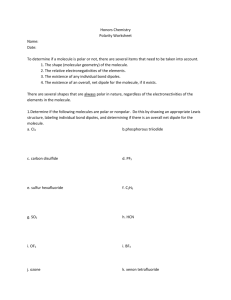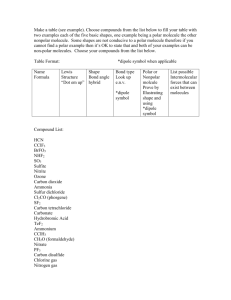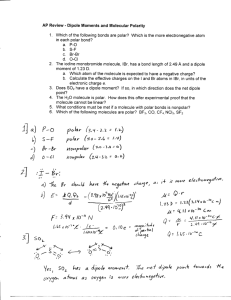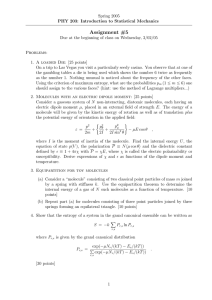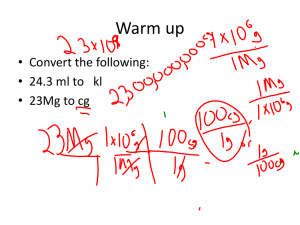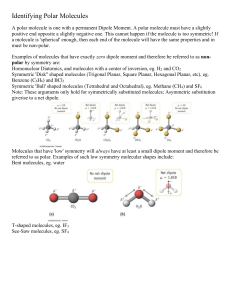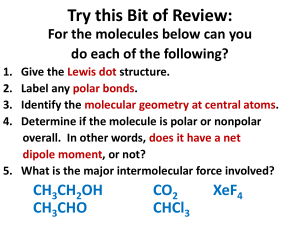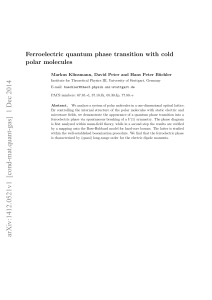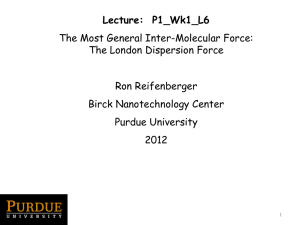Electric Dipoles - De Anza College
advertisement
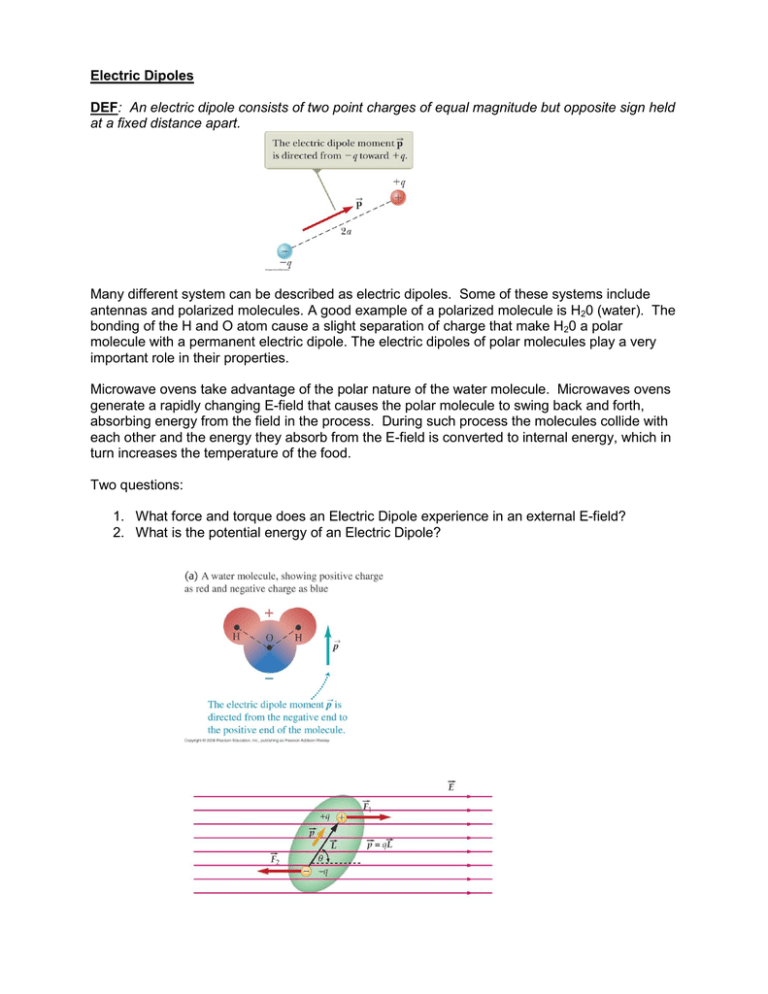
Electric Dipoles DEF: An electric dipole consists of two point charges of equal magnitude but opposite sign held at a fixed distance apart. Many different system can be described as electric dipoles. Some of these systems include antennas and polarized molecules. A good example of a polarized molecule is H20 (water). The bonding of the H and O atom cause a slight separation of charge that make H20 a polar molecule with a permanent electric dipole. The electric dipoles of polar molecules play a very important role in their properties. Microwave ovens take advantage of the polar nature of the water molecule. Microwaves ovens generate a rapidly changing E-field that causes the polar molecule to swing back and forth, absorbing energy from the field in the process. During such process the molecules collide with each other and the energy they absorb from the E-field is converted to internal energy, which in turn increases the temperature of the food. Two questions: 1. What force and torque does an Electric Dipole experience in an external E-field? 2. What is the potential energy of an Electric Dipole?
